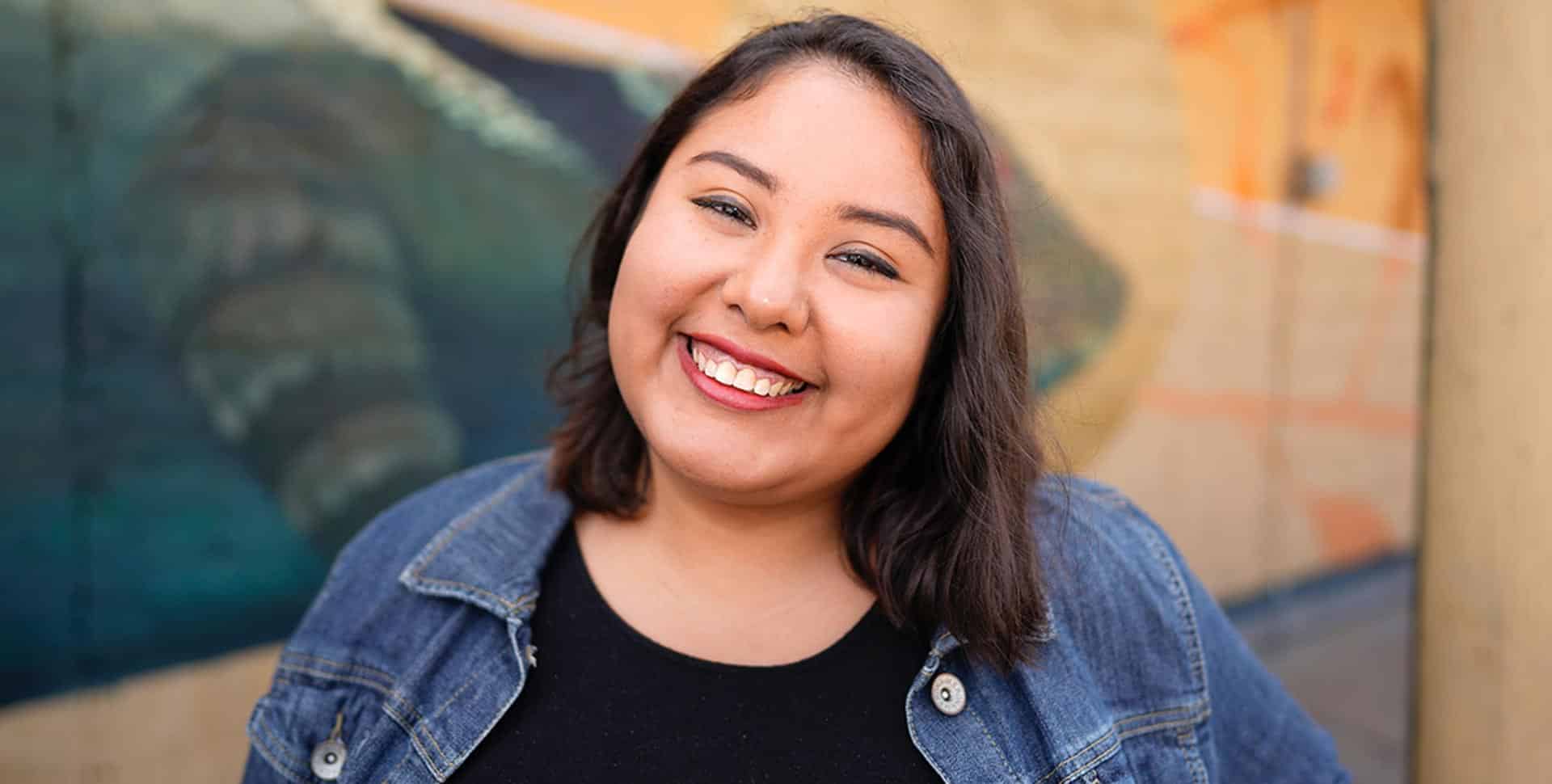When Sarah was 16, a friend introduced her to Youth Off The Streets. She was experiencing domestic violence at home and struggling to stay motivated at school.
“I often didn’t go to school,” she admits. “I was hanging out with the wrong crowd. I felt furious about what was happening in my life. Then one of my friends told me about Eden College and said that I should give it a go.”
Eden College is one of Youth Off The Streets’ six alternative high schools, providing alternative education for young people who have become disconnected from mainstream schools.
“I started school there, and I liked it,” Sarah says. “The teachers not only help with your schooling, but with learning to deal with your emotions and trauma. It also helps you when your classmates have the same kind of story and can relate to what you’re going through.”
“If I didn’t go to Eden College, I would be in a very different place right now,” she says.
Sarah eventually left Eden College and stayed in contact with her youth workers.
When she was 20, she was living in a refuge and needed support to find work, so she engaged with Youth Off The Streets’ employment program.
She knew she had some skills, but would need to develop others to help her stand out to potential employers.
“At the time, I was still living in a refuge,” she recalls. “I was unemployed. I didn’t know how to apply for jobs. It was a rough time, and I didn’t know what to do.”
World Youth Skills Day highlights the importance of equipping young people with skills for meaningful employment and entrepreneurship.
Youth Off The Streets’ employment program, called Journey to Work, gives young people experiencing disadvantage tailored one-on-one support to start a career and reach their full potential.
Sabrina Misela, Youth Off The Streets’ Program Manager – Employment Services, says that some of the barriers young people face in their search for work include access to flexible transport – many don’t have a driver’s licence – and a lack of skill development.
“Many of these young people don’t know how to build a resume,” she explains.
“They often fall into casual jobs or get taken advantage of – through cash in hand – because they need the money.”
Sabrina provides tailored assistance through employment workshops and individual support at Youth Off The Streets’ high schools, focusing on addressing these barriers.
“Sarah had been connected with different external employment service providers to try to help her look for work,” Sabrina explains. “But often young people like her don’t see this process as particularly useful in their journey to work, or finding a fulfilling career.”
Because of intergenerational trauma or poverty, many young people Youth Off The Streets works with haven’t been exposed to parents working nine-to-five, stable jobs.
“I will ask them, ‘What do Mum and Dad usually do for work?’” Sabrina says. “I’ll often find out that they live in a one-parent or grandparent working household, or one or both parents aren’t employed.”
“If you’re used to seeing adults having multiple jobs, or shift jobs that constantly change, it’s hard for young people to set long-term goals, let alone dream of a career.”
Sabrina helps young people understand what they want in a career and then provides them with options to get there.
“That’s the difference between our employment program and many other services out there,” she explains. “They’re not being asked what they want to do with their lives, or what they understand about working or getting paid.
“We did a lot of research before we started writing this model because we wanted to make sure that we were careful not to duplicate what was already out there, while still meeting the most immediate needs of young people.”
Sarah never thought she’d get a full-time job working in a luxury hotel. Sabrina helped her write a resume and practice interview skills. When Park Hyatt Sydney offered her a job, she was ecstatic.
“I was so happy that day,” she says. “It was amazing! Since then, my life has changed for the better.”
“I’m learning new skills like bartending and all about wines,” she explains. “I’m gaining as much knowledge as I can.”
“Park Hyatt was impressed with Sarah from the get-go,” Sabrina recalls.
“They loved her enthusiasm. Her start date had to be pushed back because of the bushfires in early 2020 and COVID. As soon as hiring opened across Hyatt Hotels globally, they called about Sarah.”
Sarah loves her job and hopes to gain global experience when Australia’s borders reopen.
“I feel like it’s where I’m meant to be,” she says.
“I love talking to the guests. Every day I learn something new. They’ve given me so much opportunity, and I’ve grown. I never have a day where I dread going to work.
“They have international opportunities,” she adds. “When the borders open, I’d like to work at the Hyatt in London or New York.”
Sabrina gives clients 12 months of work placement support to help them address and overcome any issues that might arise.
She also works closely with corporate supporters to ensure their needs in supporting the young person are met.
“We’re filling a gap,” she states. “We often catch them in this gap between school and work, where they’re floating around.
“We give them the skills training and ongoing support they need so that they can achieve their dreams.”
Sarah says the most important thing she’s learned throughout the process is to never give up.
“If you have a goal, reach for it,” she says. “Never give up, and don’t settle for less. When you’re given an opportunity to learn new skills, don’t say no. Even if you’re unsure, it might be the best thing that’s ever happened to you.”
Image changed to protect the privacy of the young person.
Click here to read more inspiring stories like Sarah’s.

